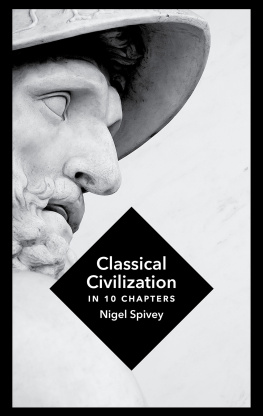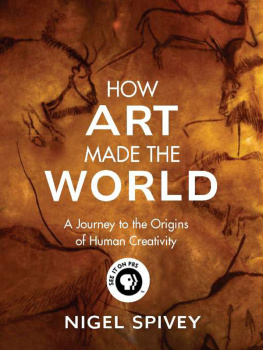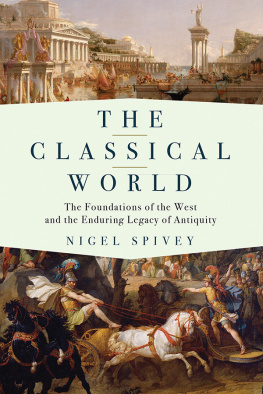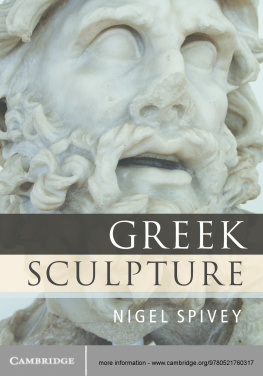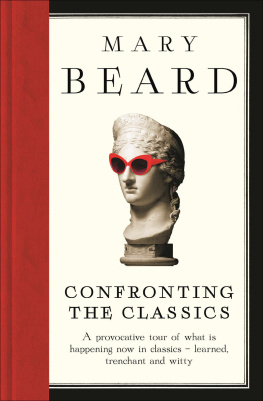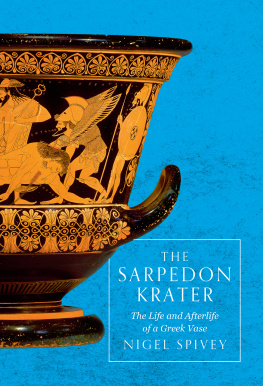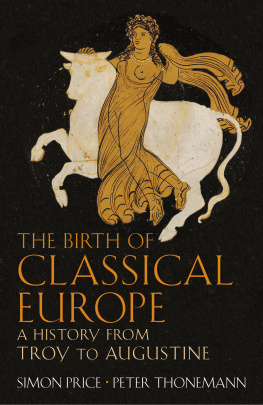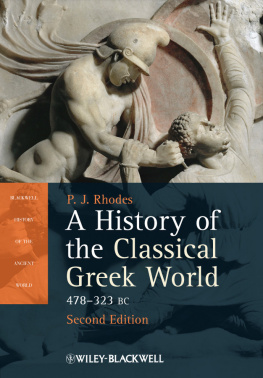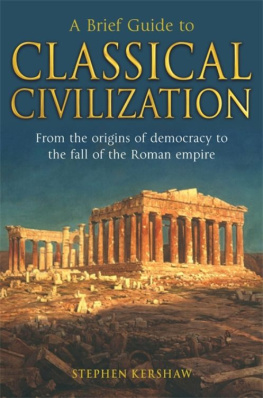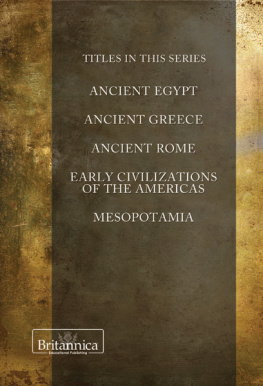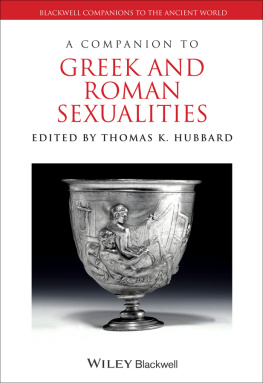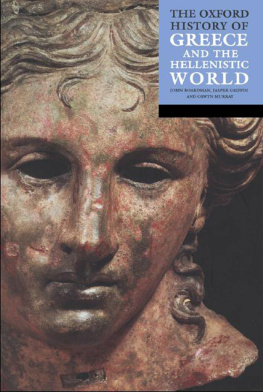
www.headofzeus.com
Contents
Many things are both wonderful & terrible,
but none more so than humankind.
Through highwalled waves of ocean storm
the species makes its way
drenched but victorious. What cant we do?
The flesh of the earth
Gaia, weariless mother of all
we pound, slash, and try.
Year in, year out, our ploughs scrape back & forth.
The gleeful tribe of birds
we bring down low. Roaming beasts are bound.
The nets we weave steal speechless creatures from the deep.
All thats wild we will outwit.
So we break the urgent steed;
the massive bull, however proud, must learn to wear our yoke.
Words serve us too. Give voice to a thought and it journeys the globe
in no time. Shelter from winters spite
we have contrived, and more besides:
all the craft that makes a state
is part of human skill.
How not to die eludes us: true. Meanwhile,
whatever ails our mortal state we plot to thwart
with clever and successful cures.
Experience unbaffles us. But human cunning
leads two ways. To scheme for bad;
to work for good. Hold firm with laws
carved by centuries, and trust in solemn oaths:
so the city stands. To go the other way
is how to bring it down.
After Sophocles, Antigone 33270

Two terms in the title of this book require some definition.
Classical is an ambivalent word. Broadly, it can mean the period and places of antiquity in which the Greeks and Romans flourished: emphatically (but not entirely) around the Mediterranean, and chronologically from around 800 BC until AD 400. In some contexts it may denote an epoch lasting little more than the fifth century BC, a recognized summit in the landscape of Greek politics, art and literature. Associated with this sense of classical is the concept of a classic. This comes from a Latin adjective, classicus , and is used to categorize something as absolutely excellent: first class, worthy of emulation, of a standard to be aimed for. The first of these senses predominates in this book, but the second has some bearing upon how we take the word civilization.
This is very civilized, we might say, on finding a delicious meal laid out, or some other situation marked by comfort and good manners. Such a loose understanding of the term civilization is not irrelevant here, but it will not serve as a starting point. Living in cities is perhaps over-deterministic, but associations with a communal existence governed by expectations of property rights, mutual respect and the rule of law take us closer to what we want from the word. Of course it is proper to speak of earlier civilizations in India, Anatolia and Egypt. But one justification for this book lies in the fact that so much of our terminology for defining civilization comes from the classical languages. Whether Greek (democracy, hygiene, political, ethical, barbarous, sympathy) or Latin (society, civility, justice, humane, equality, liberty, fraternity), our ways of thinking are so conditioned by the Graeco-Roman legacy of discourse and intellectual formation (academic, education, scholarship) that we can hardly avoid using ancient Greece and Rome as exemplary.
The story that follows tries not to idealize this exemplary status. If it fails to dwell upon the routine indignities of slavery, the subjection of women, the practice of religious superstition, and the prevalence of squalor, disease, violence and infant mortality in the ancient world, that is because it is, after all, a survey of classical civilization . And because there is also the adjacent sense of classical civilization, readers will find little by way of evoking everyday life in ancient Greece and Rome. Certain archaeological sites such as Olynthus in the Chalkidike peninsula, destroyed in 348 BC, and never reoccupied; or Pompeii and Herculaneum, caught in the volcanic eruption of Vesuvius in AD 79 offer fascinating, if sometimes morbid, relics of domestic life. But a book that sought to encompass everything, from elite pleasures to peasant subsistence, would be a very big and potentially rather boring volume.
Our story begins in the Bronze Age, with Troy Troy imagined, Troy as was and it ends, under 2,000 years later, at Constantinople not very far, geographically, from the beginning. An exceptional chapter, inadequately entitled Utopia, comes in the middle. This forms an interval for consideration of Greek and Roman philosophy and science. It was one of those philosopher-scientists, Aristotle, who defined our species as political animals. What he meant by this definition is that humans along with certain other gregarious creatures, such as bees, ants and cranes tend to form societies focused upon a shared common end, or communal benefit. Some implications of this categorization are insidious (are masses of humans destined to be drones, serving a single royal ruler in the hive?), yet it brings us naturally to consider the household, the community and then the city, or city-state ( polis ), as a defining unit of our species. Given the nexus between cities (as developed in the Graeco-Roman world) and civilization as routinely characterized, it seemed obvious to organize the rest of the book according to particular cities of classical antiquity. The narrative impetus remains, however, more chronological than topographical.
A different author might have said more about medicine, mathematics, technology and the subtleties of Roman jurisprudence. But a different author might have said less about those aspects of classical antiquity that enshrine, or foreshadow, those modern values usually described as liberal. Again etymology is telling: the anticipation of tolerance, decency and humanitarian concern comes with the Greek concept of philanthropia , love of humankind, and the Latin phrase humanitas Romana . At the risk of wishful thinking, and doubtless in justification of a life spent largely in learning and teaching Classics, I have privileged those elements from Greece and Rome that underlie our concept of the Humanities time-honoured yet fragile as they are.
Nigel Spivey
Emmanuel College, Cambridge
A note on spelling and orthography
Renditions of names, places and periods generally, though not invariably, follow the example set by the Oxford Classical Dictionary (fourth edition, 2012). Where Greek has been transliterated, it is left in its simplest anglicized form.
I
Troy

A rather underwhelming ruin on the shores of Asia Minor; a prehistoric stronghold associated with conflict and destruction. Why begin with Troy?
It is tempting to answer that question in the melodramatic clich, one man with the name added in a Hollywood growl: Homer. The temptation is dangerous, not least because we know so little about the existence of this individual. Yet Troy depends upon him; and this city, as he imagined it, is where classical civilization begins.
Around the middle of the eighth century BC over 2,700 years ago it seems that a certain professional poet, known to posterity as Homer, gained a reputation for reciting stories cast in epic verse. This was not rhyming poetry, but it had a strong rhythm or beat; and its subject was strong, too. Epic denotes a narrative set in the age of heroes great-hearted, muscular characters whose deeds make the lives of ordinary mortals appear puny by comparison. Homers name is attached to a pair of epic poems that constitute the founding works of Western literature. One is the Iliad , which describes certain events during a protracted siege of Troy by a contingent of Greek warriors led by Agamemnon; the other is the Odyssey , which tells how one of those Greek warriors, Odysseus, made his adventurous way home after Troy was eventually taken.

